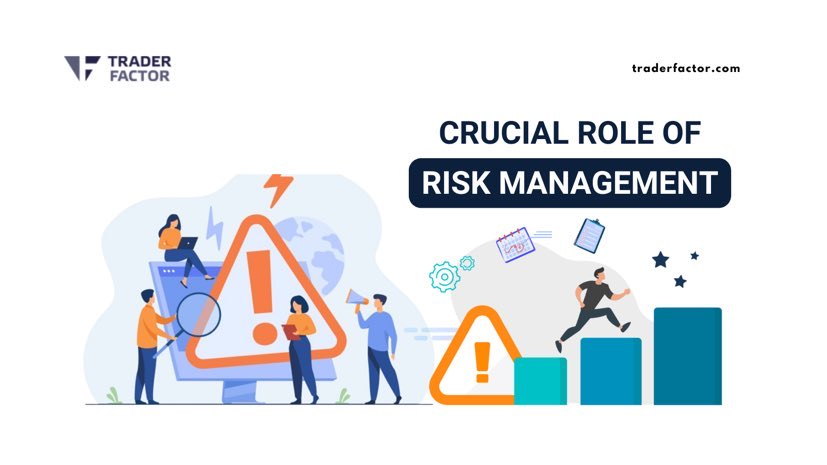Do you want to master the world of forex trading?
Understanding the crucial role of risk management is key. In this article, we’ll show you the basics, the importance of risk management, and common risks you might encounter.
We’ll also guide you in developing a solid risk management plan and share effective techniques and strategies.
Don’t miss out on monitoring and adjusting your approach to ensure success in forex trading.
Table of Contents
ToggleKey Takeaways
- Currencies are traded in pairs and understanding currency pairs and leverage is crucial in forex trading.
- Risk management plays a vital role in forex trading by minimizing potential losses and preserving capital investments.
- Setting stop-loss orders and diversifying trades are important risk management techniques.
- Effective risk management strategies enhance profit potential by protecting capital from losses, setting appropriate stop-loss orders, and diversifying trades.

The Basics of Forex Trading
When you enter the world of forex trading, you’ll encounter various basic concepts and principles that are essential for understanding how this market operates. One of the fundamental concepts you’ll come across is the currency pair.
In forex trading, currencies are traded in pairs, such as the EUR/USD or GBP/JPY. The first currency in the pair is called the base currency, while the second currency is the quote currency. Understanding currency pairs is crucial because it determines the value of a currency relative to another.
Another important concept is leverage. Leverage allows you to control a larger position in the market with a smaller initial investment. It magnifies your potential profits, but it also increases your risk. It’s important to understand how leverage works and use it wisely to manage your risk effectively.
Additionally, you’ll encounter the concept of pips. A pip is the smallest unit of measurement in forex trading and represents the price movement of a currency pair. It’s important to know how to calculate pips as it helps you determine your potential profits or losses.

The Importance of Risk Management
When it comes to forex trading, risk management plays a crucial role in your success.
By minimizing potential losses, you can protect your capital investments and ensure the longevity of your trading account.
Additionally, effective risk management strategies can also enhance your profit potential and maximize your overall returns.
Minimizing Potential Losses
To minimize potential losses in Forex trading, you must prioritize risk management. This means understanding the risks involved and implementing strategies to mitigate them.
One important aspect of risk management is setting stop-loss orders. By setting a stop-loss order, you define the maximum amount you’re willing to lose on a trade. If the market moves against you and reaches that level, the trade is automatically closed, limiting your potential losses.
Another way to minimize potential losses is by diversifying your trades. This involves spreading your investments across different currency pairs, rather than putting all your eggs in one basket. Diversification helps to reduce the impact of any single trade on your overall portfolio.

Preserving Capital Investments
To preserve your capital investments in Forex trading, it’s essential to prioritize risk management. By implementing effective risk management strategies, you can safeguard your funds and ensure long-term success in the volatile Forex market. Here are five crucial reasons why risk management should be your top priority:
- Protection: Proper risk management shields your investments from significant losses, preserving your capital for future trades.
- Peace of Mind: Knowing that you have measures in place to limit potential losses can reduce stress and anxiety while trading.
- Consistency: Consistent risk management allows you to maintain a steady approach to trading, avoiding impulsive decisions that could jeopardize your investments.
- Profitability: By controlling risk, you create a more predictable trading environment, increasing the likelihood of consistent profits over time.
- Longevity: By preserving your capital, you ensure that you have the funds necessary to continue trading and capitalizing on profitable opportunities.
Enhancing Profit Potential
Maximizing profit potential in Forex trading heavily relies on effective risk management strategies.
While the main goal of trading is to make profits, it’s equally important to protect your capital from significant losses.
By implementing proper risk management techniques, you can enhance your profit potential and increase your chances of success in the Forex market.
One crucial aspect of risk management is setting appropriate stop-loss orders. These orders help limit your losses by automatically closing your positions when the market moves against you.
Additionally, diversifying your trades and not putting all your eggs in one basket can also contribute to enhancing your profit potential.
By spreading your investments across different currency pairs, you reduce the risk of losing all your capital in case a single trade goes wrong.

Common Risks in Forex Trading
When it comes to forex trading, you need to be aware of the common risks that you may encounter.
Market volatility and unpredictability are two major risks that can greatly affect your trading decisions and outcomes.
Additionally, there’s always the potential for loss of capital, so it’s crucial to have a solid risk management strategy in place.
Market Volatility and Unpredictability
Market volatility and unpredictability pose significant risks in forex trading. The constantly changing nature of the forex market can make it difficult to predict price movements accurately. This can lead to sudden and unexpected losses for traders.
Here are some common risks associated with market volatility and unpredictability:
- Rapid price fluctuations can result in significant losses.
- Increased slippage, where trades are executed at a different price than expected.
- High levels of market noise, make it harder to identify trends and patterns.
- Increased likelihood of false signals, leading to poor trading decisions.
- Difficulty in setting stop-loss orders effectively, potentially exposing traders to larger losses.
These risks highlight the importance of implementing effective risk management strategies to protect your capital and navigate the challenges posed by market volatility and unpredictability.
Potential Loss of Capital
To protect your capital in forex trading, it’s crucial to be aware of the potential risks that can lead to a loss of funds. Forex trading involves significant risks, and understanding them is essential for successful trading.
One common risk is market volatility, which can lead to sudden and significant price movements. These fluctuations can result in unexpected losses if not managed properly.
Another risk is leverage, which allows traders to control larger positions with a smaller amount of capital. While leverage can amplify profits, it also magnifies losses, potentially wiping out your entire investment.
Additionally, economic events and news releases can cause market volatility, leading to rapid and unpredictable price changes.

Developing a Risk Management Plan
To develop a risk management plan for forex trading, you need to carefully assess your risk tolerance and establish clear guidelines for managing potential losses. It’s crucial to understand that trading in the forex market involves inherent risks, and having a solid risk management plan is essential to protect your capital and ensure long-term success.
Here are five important elements to consider when developing your risk management plan:
- Set a maximum risk per trade: Determine the maximum amount of capital you’re willing to risk on each trade. This will help you avoid excessive losses and maintain discipline in your trading approach.
- Use stop-loss orders: Implementing stop-loss orders allows you to automatically exit a trade if it reaches a predetermined level of loss. This helps limit potential losses and protect your capital.
- Diversify your portfolio: Avoid putting all your eggs in one basket by spreading your investments across different currency pairs. This diversification strategy helps reduce the impact of a single trade on your overall portfolio.
- Regularly review and adjust your plan: The forex market is dynamic, and conditions can change rapidly. Regularly reviewing and adjusting your risk management plan ensures it remains effective in different market environments.
- Practice proper money management: Determine the appropriate position size for each trade based on your account size and risk tolerance. This will help you manage risk effectively and avoid overexposure.

Risk Management Techniques and Strategies
Implementing effective risk management techniques and strategies is crucial for navigating the forex market and protecting your capital.
The forex market is highly volatile and unpredictable, and without proper risk management, you could potentially lose a significant portion of your investment.
One of the most important risk management techniques is setting appropriate stop-loss orders. A stop-loss order is an instruction to close a trade at a predetermined price level, limiting your potential losses. By setting a stop-loss order, you can protect yourself from incurring significant losses if the market moves against your position.
Another important risk management strategy is diversification. Diversifying your portfolio by trading multiple currency pairs can help spread out your risk. This means that if one currency pair performs poorly, the impact on your overall portfolio will be minimized.
Additionally, maintaining a disciplined approach to trading is essential for effective risk management. This includes sticking to your trading plan, avoiding impulsive decisions, and managing your emotions.

Monitoring and Adjusting Your Risk Management Approach
As you navigate the forex market and protect your capital, it’s crucial to continuously monitor and adjust your risk management approach. The forex market is dynamic and constantly changing, so it’s essential to stay vigilant and adapt your risk management strategies accordingly. Here are five key reasons why monitoring and adjusting your risk management approach is vital:
- Maximize Profits: By closely monitoring the market and adjusting your risk management approach, you can identify opportunities to maximize your profits and capitalize on favorable market conditions.
- Minimize Losses: Regularly assessing your risk management approach allows you to identify potential risks and take necessary actions to minimize losses. This helps you protect your capital and maintain a sustainable trading strategy.
- Stay Ahead of Market Trends: By continuously monitoring the market, you can stay informed about emerging trends and adjust your risk management approach to align with market movements. This enables you to make informed decisions and stay ahead of the curve.
- Preserve Emotional Well-being: Monitoring and adjusting your risk management approach helps alleviate anxiety and stress associated with trading. By being proactive, you can reduce emotional decision-making and maintain a calm and focused mindset.
- Adapt to Changing Market Conditions: The forex market is influenced by various factors such as economic events, geopolitical developments, and market sentiment. By monitoring these changes and adjusting your risk management approach, you can adapt to evolving market conditions and navigate potential risks effectively.

Frequently Asked Questions
Can I Trade Forex Without Using Risk Management Techniques?
No, you cannot trade forex without using risk management techniques. Risk management is crucial in forex trading to protect your capital and prevent significant losses. It helps you make informed decisions and manage potential risks effectively.
What Are Some Common Mistakes to Avoid When It Comes to Risk Management in Forex Trading?
When it comes to risk management in forex trading, some common mistakes to avoid include not setting stop-loss orders, risking too much capital on one trade, and not diversifying your portfolio.
How Can I Determine the Proper Position Size for Each Trade to Manage Risk Effectively?
To determine the proper position size for each trade and manage risk effectively, you can calculate it based on your risk tolerance and stop loss level. This helps you protect your capital and minimize potential losses.
Are There Any Specific Risk Management Tools or Software That Can Be Used in Forex Trading?
Yes, there are specific risk management tools and software available for forex trading. They can help you analyze market trends, set stop-loss orders, and calculate position sizes to effectively manage your risk.
What Are Some Key Indicators or Signals to Watch for When Monitoring and Adjusting My Risk Management Approach in Forex Trading?
When monitoring and adjusting your risk management approach in forex trading, key indicators to watch for include changes in market volatility, economic news releases, and price movements. Signals can come from technical analysis tools and patterns.

Conclusion
In conclusion, understanding and implementing effective risk management techniques are crucial in forex trading. By properly managing risks, you can minimize potential losses and protect your capital.
Developing a risk management plan, using appropriate strategies, and continuously monitoring and adjusting your approach will help you navigate the unpredictable nature of the forex market.
Remember, successful forex trading isn’t just about making profits, but also about preserving and managing your funds wisely.















